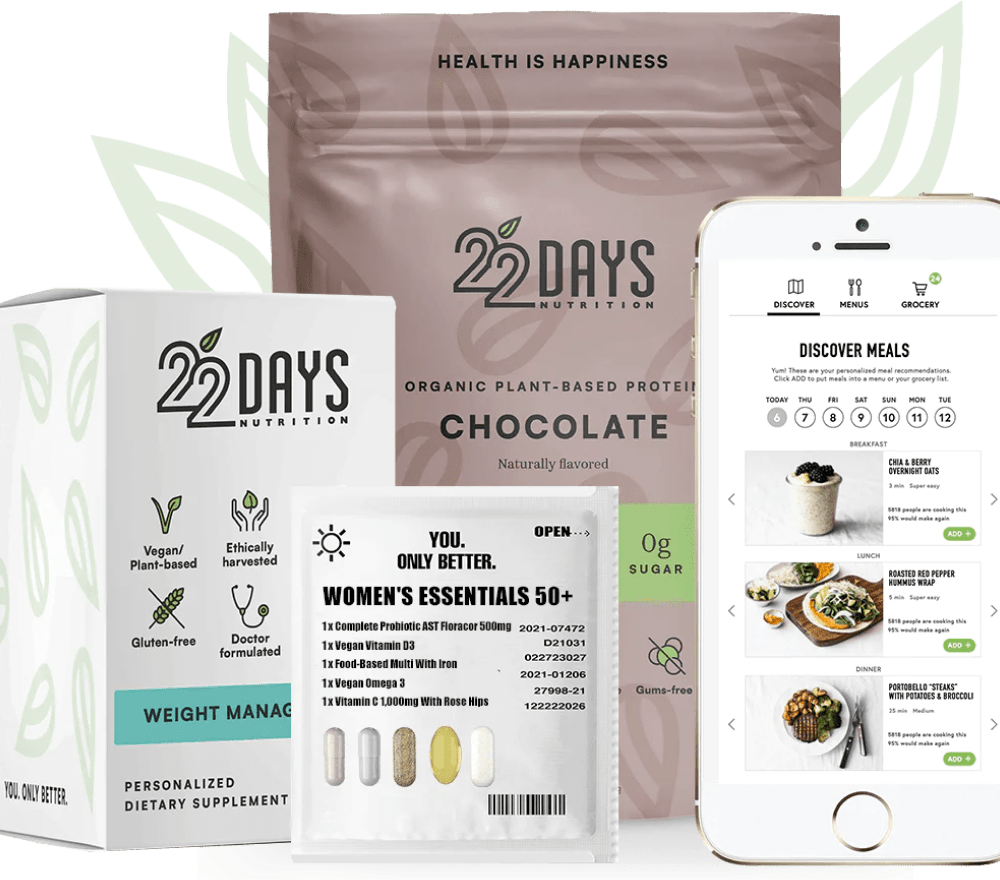Is Mayo Bad for You? How to Find (and Make) Healthy Mayonnaise
Traditionally-speaking, the biggest argument against mayonnaise is that it contains a huge amount of fat and calories. Just 1 tbsp of regular mayo packs roughly 90 calories and 10g of fat (15% of the recommended daily value for fat). With these numbers, it's easy to take in tons of extra calories when eating mayonnaise.
But, is mayo bad for you? Are there ways to make it healthier? Keep reading to learn more about mayo
Mayonnaise Nutrition Breakdown
Mayo is made of mostly oil, with egg yolk and lemon juice added in. The process of emulsification creates the creamy texture that mayo enthusiasts know and love.
Mayo mass producers often use some vegetable or soy oil blends, which aren’t the healthiest types of oils. These contain a large amount of omega-6 fats and very little (if any) omega-3 fats. This unbalanced ratio is common in processed foods, and it can lead to an increased risk of heart disease and inflammatory disorders.
Although our body certainly needs fats, there’s a huge difference between healthy fats and the fats found in most mayonnaise recipes.
How Can You Find Healthy Mayonnaise?
Simply put, make it yourself. Ditch the additives and unhealthy oils and opt instead for unrefined, heart-healthy oils. Mayonnaise is actually incredibly easy to make! When you use the right ingredients (and watch your portion size) it can be a flavorful addition to a healthy diet.
If you have to buy mayo in-store, keep an eye out for recipes that include avocado oil, olive oil, or sunflower seed oil (these are rich in healthy, monounsaturated fats). Also, try to avoid unnecessary additives and preservatives. If it has a huge list of ingredients, it's probably not the best option.
However, the best way to ensure you’re eating the healthiest mayo is to make it yourself.
The healthiest, easiest, and longest-lasting mayo recipes are actually vegan! There are quite a few creative recipes that add more nutrition to mayo, since the typical mayonnaise nutrition benefits are minimal. Our favorite recipes are made with cashews or tofu, which adds a bunch of vitamins and minerals to your mayo (and still tastes delicious).
Because vegan mayo contains no preservatives, it’s kept refrigerated from when it’s made to when it’s eaten. That said, it will last longer than traditional mayo because there are no eggs that will go bad.
Easy + Healthy Mayo Recipes
Even if you’re not vegan, these recipes are not only tasty but also packed full of great, natural ingredients. Check them out for yourself and see how tasty homemade vegan mayo can be!
One of our favorite recipes actually uses no oil and still has an amazing, creamy texture. Eliminating oil cuts down on the calories, so it’s great for those trying to lose weight (especially the tofu version).
Oil-Free Mayo
Simply blend up all the following ingredients in a high-powered blender.
- 1 cup raw cashews OR 8 oz silken tofu (tofu is a much lower calorie option)
- 1 tbsp lemon juice
- 1 tsp apple cider vinegar
- 1 tsp dijon mustard
- 1 tsp garlic powder
- ¼ tsp salt
- ¼ to ½ cup water
- If using tofu, add ¼ tsp sugar or a pinch of stevia
Oil-Based Recipe:
- 1 cup avocado oil
- ½ cup soymilk
- 2 tbsp apple cider vinegar
- Salt, to taste
- Ground mustard, to taste
After whipping all these mayo ingredients together, you’ll be able to enjoy some of the healthiest mayo ever.
Watching Your Portion Size
Mayo isn’t really a problem if you’re just spreading a little bit on your sandwich, but it starts to get calorie-dense when you’re using cups of it for dishes like potato salad or coleslaw. When it comes to these meals, it’s important to consider the portion sizes you’re eating.
Unless you use the low-calorie tofu recipe listed above, then the calories will quickly add up. Even healthy mayo can easily be very high in calories, which can cause weight gain. It can be helpful to make these dishes alongside salads and other low-calorie meals to balance it out while ensuring you get full.
When you’re eating mayo-based foods, make sure to watch your portions. Using an app like Cronometer or MyFitnessPal can help you keep track of your calories to make sure you don’t eat too much. Unfortunately, your ideal portion size is usually smaller than you’d think!
Bottom Line – Is Mayo Healthy?
Overall, don't let traditional mayonnaise nutrition facts scare you. It can absolutely be a healthy addition to your diet as long as you don’t purchase products made with unhealthy oils and additives. In fact, it’s best to make your own – vegan recipes are the healthiest and easiest to make. If you’re cutting calories, you don’t have to avoid mayo. You can make a low-calorie option using tofu (and yes, it’s better than it sounds)!





